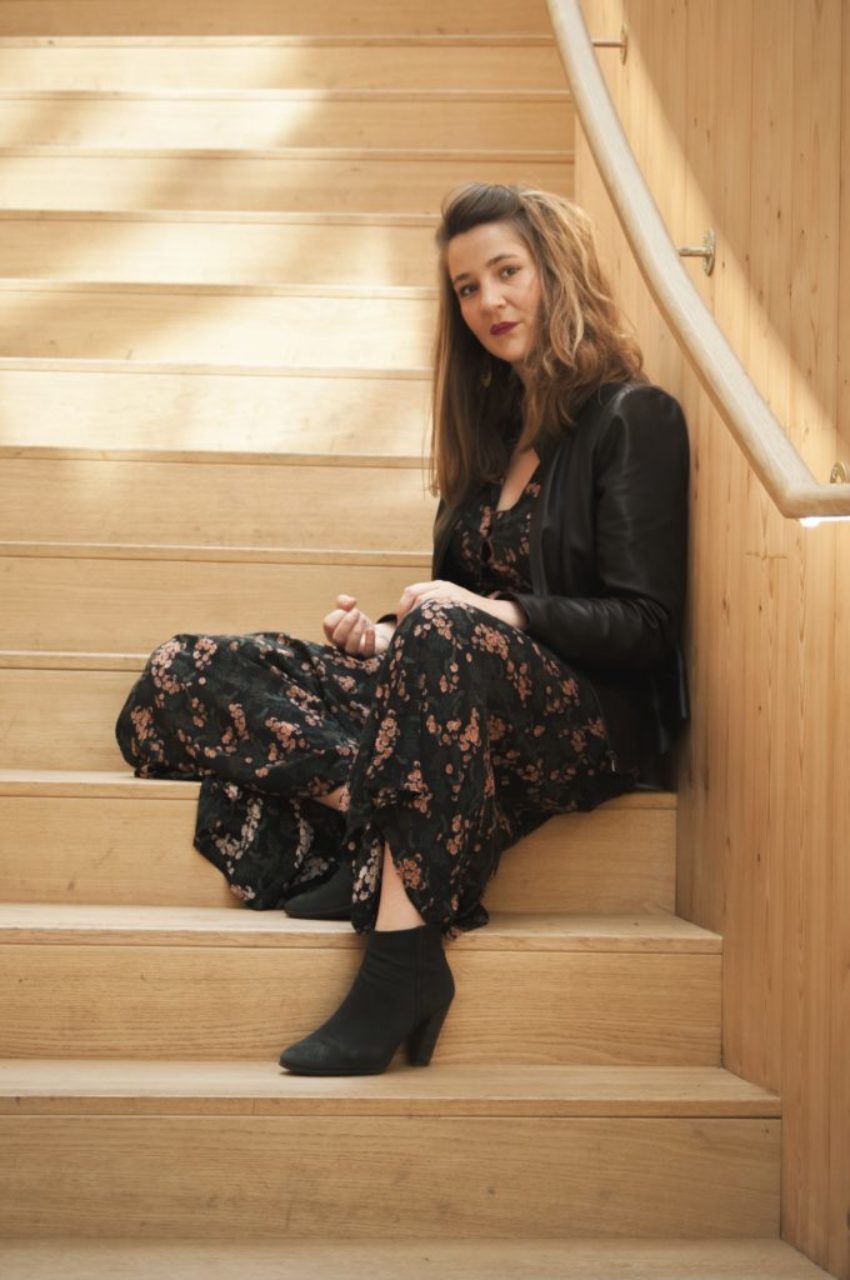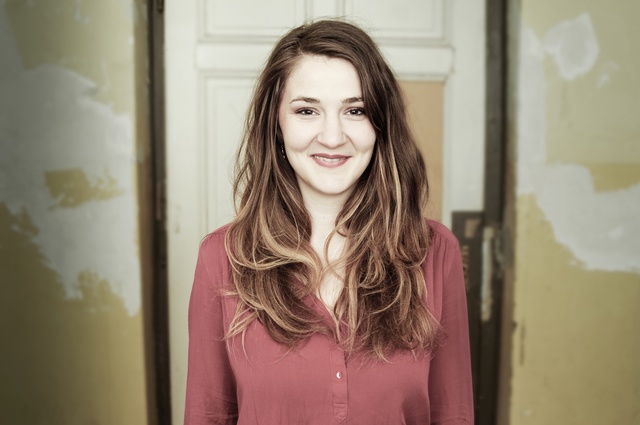About
« The sensual and racy voice of mezzo soprano Anaïs Bertrand is attractive and leads us into history like the coryphaeus of the ancient tragedy. »
resmusica.com
Alongside with a sociology degree, Anaïs Bertrand first studied singing with the Notre-Dame-de-Paris’ Cathedral’s Choir, then at the Paris National Conservatory. She worked as well with Regina Werner at the Leipzig’s Hochschule. In 2018 Anaïs was awarded first prize in the Froville’s baroque singing contest.
As a delicate musician, she benefits from all types of expressions offered by vocal repertoire : ranging from Gregorian chant to contemporary music or polyphony to lyrical art.
In 2023, she recorded for the label Oktavrecord a record in duo with Alexis Gournel, dedicated to Gabriel Fauré’s « Chanson d’Eve« , a cycle by Reynaldo Hahn and a creation by Fabien Touchard. She’s also a part of the recording of « Un lieu à soi » dedicated to English music with the collective Acte 6.

She performs with the company Maurice et les autres the role of Carmen at the Théâtre de l’Aquarium in a revisited version of Georges Bizet’s work. In 2024 she will also sing with Le Poème Harmonique in « Le Carnaval Baroque », at the Opéra de Rennes, at the Théâtre des Champs-Elysées or at the Théâtre de Caen.
Anaïs Bertrand is a member of the ensemble Près de votre oreille with which she created in 2023 the foundations of a chamber opera, »Les vies ordinaires d’Anaïs », written by Fabien Touchard and based on a libretto by Milena Csergo.
She records « Come Sorrow » (Paraty, 2019) and « Blessed Echoes » (Paraty, 2023) dedicated to Elizabethan song as well as duet with Robin Pharo, « The Waves » (Scala Music, 2023), devoted to contemporary music for gamba and voice and melody transcriptions of Nadia Boulanger, Lou Koster and Claude
Debussy.

She also had the opportunity to work as a soloist with other ensembles such as Les Surprises (Louis Noël Bestion de Camboulas), Pygmalion (Raphaël Pichon), La Tempête (Simon Pierre Bestion), Le Concert de l’Hostel-Dieu (Franck Emmanuel Comte) or l’Ensemble Maja (Bianca Chillemi), with whom she
sings « Upon Silence » by George Benjamin, « Les Chansons Madécasses » by Maurice Ravel or Luciano Berio’s « Folksongs ».
She is also involved in the productions of the Ensemble Aedes (Mathieu Romano), which notably defends the a capella repertoire of the 20th century.